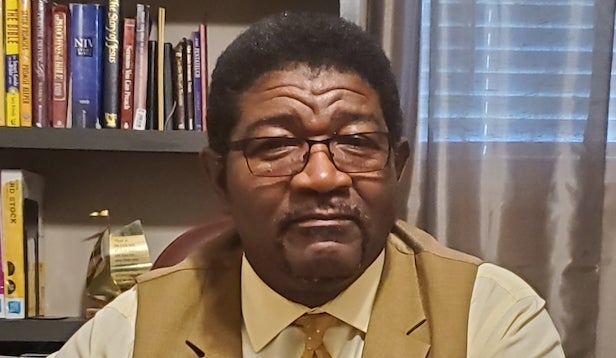Local pastor studies medicine, theology link at Yale Divinity School program
Published 8:12 pm Tuesday, December 26, 2017

- MINISTRIES: Participants in the Continuing Education for Pastors in Science program at Andover Newton Seminary at Yale Divinity School on Dec. 7. Senior pastor at Macedonia AME Zion Church and chief operations officer and a founder of Metropolitan Community Health Services Rev. Lynn Bolden is pictured on the first row, third from left. (Yale University)
The Rev. Lynn Bolden is doing something Luke, author of one of the four Gospels, did: mix theology and medicine. After all, Luke was a physician.
Bolden, senior pastor at Macedonia AME Zion Church and chief operations officer and a founder of Metropolitan Community Health Services, completed the Continuing Education for Pastors in Science program at Andover Newton Seminary at Yale Divinity School on Dec. 7. The program, sponsored by the American Association for the Advancement of Science as a result of a grant from the John Templeton Foundation, was a collaboration between the Andover Newton Seminary, the Office of Lifelong Learning at Yale Divinity School and the Yale School of Medicine.
“The program opened the academic curriculum to clergy practitioners who studied the relationship between Theology and Medicine in order to apply those learnings to their ministerial contexts. Rev. Bolden was part of a 15-person cohort of clergy who were selectively invited to participate,” according to the Rev. Debora Jackson, director of Office of Lifelong Learning at Yale Divinity School.
Bolden received her master’s degree in divinity from Yale Divinity School in 1989. She said she welcomed the chance to take part in the program, not only as a member of the clergy, but because she once considered pursuing a medical degree in addition to studying theology.
“This was a wonderful opportunity to go back into a scholarly environment,” Bolden said. “Up to this point, the dialogue between medicine and spirituality has not really occurred in the modern era. They’re two very different disciplines. What this did was it brought together seasoned pastors like myself, together with medical students and faculty that had both degrees in medicine and theology.”
Bolden was one of 15 pastors selected from across the U.S. for the program — another came from Germany — and the result was an open dialogue about how faith and medicine intertwine, all the way back to the middle ages when monasteries served a dual role as places of worship and of healing. She said it was an opportunity, as well, to learn about hard science and the molecular basis of pain, the understanding of which can be valuable to daily ministering.
“We were looking at studies that were done over the years, looking at cancer, aging, all of these things that we observe in our pastoral ministries, but never really understood the science behind it,” she said.
Once a month, for six months, the group met for classes and discussion. In between, there were papers to write and a lot of assigned reading. There were visits to the hospital and brain lab, interacting with end-of-life patients. Along the way were discussions about how there may be more than one vehicle for healing.
“It’s the whole person: spirit, mind and body. You can’t really separate them. They all work together,” Bolden said. “When we’re dealing with medical challenges that people face, we need the full arsenal: the physicians, as well as the belief system.”
Bolden said she came away from the experience with specific goals as to how to apply what they learned to churches and communities in a meaningful way, as well as a focus of study, and one with particular resonance for eastern North Carolinians.
She pointed out that during the height of the AIDS epidemic in 1992, the Centers for Disease Control statistics recorded 50,000 people per year dying of the disease. However, deaths from adult onset diabetes complications now number 80,000 per year, and adult onset diabetes is prevalent in eastern North Carolina.
“I want to focus on adult onset diabetes because I see so many people struggling with that. … For me, it would require more advance study and original research in the field, and this six-month program gave me a focus, not only for the church, but for where research needs to go in this area,” Bolden said.
Inserting spirituality into the medical environment may be the key to helping these patients heal themselves through diet, exercise and more.
“Medicine tells us what we need to get under control, but it doesn’t help us change our behavior to get it under control,” Bolden said. “But prayer might make the difference. Sometimes that prayer ‘God, give me the strength to carry through with this’ is the prayer that gets you up out of the chair, out the door and gets you through, one more time.”
She said the concept goes hand in hand with one of the studies she read as part of the program — a study that was actually performed in eastern North Carolina.
“Almost 82 percent of people in this region of the country believe that God heals through the physician. So that becomes a very important discussion in our class regarding how there may be more than one vehicle for healing,” Bolden said. “We see a pathway where spiritually and medicine. the hard science of medicine, can join forces and tip the odds in favor of a positive outcome.”




